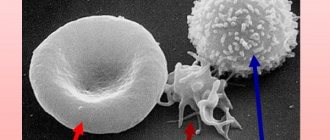Published 01/04/2019 · Comments: · Reading time: 4 min · Views: Post Views: 1,038
A common cause of anxiety for a young mother is the child's rare bowel movements. But the absence of stool for several days does not always mean constipation in a newborn. If the baby is bottle-fed or mixed-fed, he must poop every day. If a child eats only breast milk, he may not have stool for a whole week - this is one of the normal options. Drinking breast milk is well absorbed by the body. You can recognize that a newborn is constipated if there are several signs of the disorder.
Symptoms of constipation in infants
A baby who consumes exclusively breast milk may not have a bowel movement every day. Often almost all nutrients are absorbed. This is very common. Formula-fed babies may have up to three to four bowel movements per day.
However, normal bowel movement (peristalsis) varies greatly in healthy children. It depends on the type of milk, the introduction of coarse fiber into the food and what specific foods are consumed.
Understanding the possible signs of constipation can help parents spot potential constipation before bowel difficulties become a big problem.
Constipation in an infant can be identified by several symptoms:
- Retention of stool. The number of bowel movements per day will fluctuate, especially as parents introduce new foods to their baby. If several days pass without a bowel movement, the baby may be constipated.
- Voltage. If a child strains a lot during the process of emptying the intestines, this may be a sign of constipation. The stool of such children is very hard, like clay. Such feces are very difficult for the defecation process, so the baby will push or strain more than usual to poop. Babies may be fussy and cry when they have a bowel movement.
- Blood in the stool. If you notice streaks of bright red blood in your baby's stool, it's probably a sign that he's straining really hard to empty his bowels. The push and pull can cause tiny cracks around the anus, which then show up as blood.
- Hard belly. A tight belly can be a sign of constipation. Bloating and pressure caused by constipation can cause a bloated or hard belly. Frequent colic can also be a symptom of constipation.
- Refusal to eat. With constipation, the child gets full quickly. He may also refuse to eat due to increasing discomfort.
You may notice that the child crosses his legs, grimaces, stretches out, squeezing his buttocks, or spins in his chair. It may look like your baby is trying to have a bowel movement, but instead he is actually trying to hold in stool.
About
Briefly about constipation
With normal functioning of the gastrointestinal tract and intestines, the act of defecation occurs daily. The process most often occurs in the morning and does not cause discomfort or pain. Feces have a soft structure and a person does not need to make any effort to pass them.
If the process of defecation does not occur every day or the act of defecation requires strain, and the feces become too hard and dry, then in this case we can talk about constipation.
Problems with bowel movements occur at different ages. Most often, newborns and elderly people suffer from this pathology. Their bad bowel movements can last from several days to months. The urge to defecate causes severe abdominal pain and often ends in nothing.
With chronic constipation, patients often complain of poor health and ruptures of the anus. The latter forces a person to restrain the occasional urge to defecate, which subsequently aggravates the problem even more.
If constipation is left untreated for a long time, the disease is complicated by intoxication of the body. This process is explained by the breakdown of waste products accumulated in the intestinal cavity.
Recipes, menus and diet products
The correct treatment for bad stool is to eliminate the underlying cause of the disease. Therefore, to restore normal bowel movements, a complete diagnosis of the body should be carried out. Only a doctor can prescribe the correct therapy.
https://youtu.be/edePmJrBJoI
Causes of constipation in infants:
- nutrition. Changes in diet, lack of coarse fiber (fiber) or fluid in the diet can cause constipation in a child;
- disease. If your baby is sick and has lost his appetite, changes in his diet may cause constipation. Also, constipation in an infant can be a side effect of taking certain medications. In a newborn, constipation may be a sign of a certain disease. For example, hypothyroidism - decreased function of the thyroid gland;
- intentional retention of feces. A child may hold his or her stool for a variety of reasons. For example, to avoid pain when passing hard stool. This can be even more painful if the baby has a bad diaper;
- allergy to cow's milk. Cow's milk intolerance sometimes causes constipation in a month-old baby;
- heredity. Children whose family members suffer from constipation are more likely to develop this disease. This may be due to common genetic or environmental factors;
- congenital diseases. Sometimes constipation in a newborn indicates an anatomical malformation, metabolic disorder or congenital pathology of the digestive system;
- other changes. In general, any changes in a child's daily routine (such as travel, hot weather or stressful situations) can affect his overall health and the way his bowels function.
To avoid constipation in infants, find out at what age you can give your baby cow's milk.
If constipation is left untreated, it can get worse and cause various complications. The longer the stool remains inside the sigmoid and rectum, the harder and drier it becomes, the more difficult and painful it is to empty the intestines. Your child may hold back stools due to pain. This creates a vicious circle.
Preventive measures
- The mother needs to monitor whether her baby is eating enough and whether there is enough liquid in the toddler’s daily diet.
- If the baby experiences constipation, nursing women are advised to enrich their diet with foods high in potassium (for example, raisins or prunes).
- It is important to place the baby on its tummy before eating. It is advisable for the baby to remain in this position for about two minutes. After the feeding process, you need to carry the little one in an upright position.
- Make sure your baby doesn't overheat. With sweat, fluid will leave the baby’s body.
- Gymnastic exercises should occupy an important place in a child’s life. They will also promote proper intestinal motility.
- If the child has already expanded his diet, he consumes complementary foods, then the presence of foods rich in potassium and fiber is necessary. Important in his diet will be: green apples, beets, peaches, pumpkin, prunes, apricots, dried apricots, raisins. The same products are recommended for nursing mothers.
- It is necessary to introduce complementary foods in a timely manner, follow the gradual introduction of foods according to the generally accepted table; do not exceed age standards.
- Not the last place in a mother’s diet should be occupied by fermented milk products containing beneficial bacteria. They are also indicated for the baby, if his age diet may already include similar products.
- If the baby is prescribed a course of antibiotic therapy, it is necessary to take bifidobacteria or lactobacilli at the same time.
Now you know what situations can cause constipation. You need to understand that it is easier to prevent the occurrence of such a disease by following preventive methods than to carry out treatment later, especially if the baby suffers. Follow the recommendations and remember that the diet of a nursing mother largely determines how her baby will feel.
https://youtu.be/0GeXv1g4O-4
When should you see a doctor?
Constipation in children is usually not a serious condition. However, chronic constipation can lead to complications or signal an underlying disease.
Take your child to the doctor if constipation continues for more than two weeks or if the following symptoms occur:
- weight loss;
- blood in stool;
- bloating;
- vomit;
- heat;
- painful cracks in the skin in the anus (anal fissures);
- prolapse of the intestine from the anus (rectal prolapse).
Do not give a laxative or suppository to an infant without talking to your doctor first.
Causes and symptoms of the disorder
● Monotonous diet
● Congenital defects of some parts of the intestine
● Incorrect artificial feeding of the baby
● Lack of milk for the mother, lack of nutrients for the baby
● Little fluid is given to the child
● Decreased intestinal tone with rickets
● Anal fissures
● Low mobility of the child
Young parents need to control how often the baby empties its intestines. Everything matters: quantity, color and consistency. But the most important thing is to carefully monitor the baby’s well-being in order to promptly identify the symptoms of constipation and eliminate the cause of its occurrence.
What should a mother do if her baby suspects constipation? First of all, don't panic. A baby's crying is not always an indicator of constipation; maybe he is just hungry. Mothers often worry whether their babies have enough milk or not.
If the baby eats normally and nothing bothers him, retention and lack of stool may simply be a feature of the digestive system.
Sometimes the absence of bowel movements is a consequence of excellent compatibility and absorption of mother's milk by the child's stomach, or a lack of it. Such constipation is also called hunger constipation.
The main symptomatic manifestations include:
- regular stool retention for more than a day or two;
- incomplete bowel movement;
- screams, restless movements when trying to defecate;
- frequent unsuccessful attempts, accompanied by crying, screaming;
- refusal to eat;
- bloating;
- vomit.
The root causes of problems with bowel movements are directly related to infant feeding options.
Violations of nutritional standards by the mother - excessive consumption of foods that can cause negative reactions in the body. These include:
- white breads, pastries;
- fatty meats;
- cheeses with high fat content;
- bananas;
- coffee;
- Black tea;
- cocoa;
- peanut.
Selected medications taken by nursing mothers:
- diuretics;
- “No-shpa”, “Papaverine”;
- iron supplements;
- medicines for gastroduodenitis.
Lactation of milk – low levels of milk production cause “hungry” bowel syndrome. A minimal amount of breast milk is absorbed into the mucous membranes without reaching the gastrointestinal tract. The disease is determined by the absence of weight gain during control checks. Transitions to other or additional nutrition - in the absence of milk, transfer to artificial formula. Incorrectly selected supplementary feeding (introduced in the third week of life) - if the amount of breast milk is insufficient.
Complementary feeding is an independent, without pediatrician’s recommendations, modified diet designed for babies after the fourth month of life.
The main problems in children are caused by:
- an incorrectly selected mixture that is not suitable for age, containing elements that cause allergic reactions;
- violation of cooking rules: too thin or thick consistency; frequent changes from one diet to another;
- attempts to supplement the baby with breast milk.
Stressful moments:
- sudden changes in the usual environment, the mother going to work, her prolonged absence.
- Antibiotic therapy, when prescribed to this subgroup, dysbiosis develops, against which constipation appears.
- In difficult cases, children are recommended to subsequently use probiotics to restore normal levels of microflora in all parts of the intestine.
- Insufficient amount of drinking water in the daily diet.
- Inflammatory processes in the intestines, dysbiosis.
- Genetic predisposition.
- Violation of the functionality of the central nervous system, autonomic dysfunction. Damage to the anus - cracks, small wound surfaces.
- Artificial creation by parents of “lazy” bowel syndrome – constant use of enemas and laxatives.
- Insufficiency of the abdominal wall muscles, due to congenital rickets, prematurity.
- Helminthic lesions.
Breast milk is considered the ideal nutrition for a newborn. It contains all the most important nutritional elements that are necessary for good growth and proper development. A newborn does not have stool simply because he has nothing to excrete - breast milk is completely absorbed by the body. If the baby is feeling well, he is gaining weight and does not cry during bowel movements, but the baby has not had bowel movements for 2 days, there is no need to worry.
There are situations when the lack of stool can become a real problem. The reasons that a breastfeeding baby does not have any bowel movements at all may be:
- Premature birth, prematurity of the baby;
- Insufficient amount of enzymes to digest breast milk;
- Non-compliance with diet by a nursing mother.
Important! If a nursing mother consumes a large amount of cheese, fatty cottage cheese, fresh sweet pastries, or drinks a lot of coffee or strong tea per day, then the child’s risk of constipation is much higher. Also, the reason that a newborn baby goes without bowel movements for a day may be the introduction of certain foods into complementary foods. In this case, you should understand the rules for introducing complementary foods.
Lactation
The following factors may influence the occurrence of constipation in a baby fed formula:
- Incorrectly selected adaptive mixture;
- Frequent changes of milk formula for feeding;
- Insufficient amount of fluid in the body;
- Dysbacteriosis;
- Switching to artificial nutrition, as a result of which the intestines will react to unfamiliar food with constipation;
- Lack of maturity of the digestive system.
Baby drinks from a bottle
Causes of constipation in mixed-fed newborns:
- Parents could not find the ideal formula for their child, because his digestive organs are already experiencing stress from such a drastic change in diet;
- The baby is overfed or, conversely, has limited portions, which directly affects the amount of stool;
- The water balance in the baby’s body is disturbed;
- Inappropriate diet for the mother - the nursing mother must understand which foods she can eat and which ones she cannot.
To understand how to help a newborn with constipation, you first need to try to determine the cause of the disorder.
Mother's diet
Modern medicine denies the influence of the mother’s diet on the activity of the baby’s gastrointestinal tract. However, many years of experience of breastfeeding women suggests the opposite. In any case, it would be a good idea to pay attention to the mother’s condition. If the mother also experiences strengthening of her stool, she should eat foods rich in fiber for better intestinal motility. Prunes and boiled beets will have a slight laxative effect.
Not enough milk
If there is insufficient milk supply, the baby may experience “hunger constipation”. To check for this reason, you can arrange control weighings and count all the milk consumed per day. This reason is indicated by underweight in the baby. Frequent latching of the baby, even to an empty breast, helps increase the amount of milk (in this case, “demand creates supply”).
Lack of water
Under normal conditions, a breastfed baby does not need supplemental feeding.
But if it is very hot outside or the room is dry due to central heating, the child may not have enough water, which helps with the passage of feces. It makes sense to offer your baby water after feeding.
Inappropriate mixture
Constipation may be a reaction to intolerance to formula components in a formula-fed newborn. You can solve the problem by choosing a different mixture.
Taking medications
Espumisan and other colic medications often cause constipation in a newborn. When the drug is discontinued, the stool returns to normal within a few days.
Congenital lactase deficiency is a rare but serious disease that requires the attention of a doctor. More common is age-related enzyme deficiency, which goes away on its own by three months. To normalize the breakdown of sugars in the baby’s gastrointestinal tract, it is enough to exclude whole milk from the mother’s diet.
Bacteriological culture of stool will help identify disturbances in the intestinal microflora. If abnormalities are detected, the pediatrician will select the appropriate probiotic.
An infant may have congenital weak intestinal motility or other gastrointestinal problems. For diagnosis, the pediatrician will prescribe an abdominal ultrasound and other procedures.
Occasional constipation in a newborn may not have a specific cause. Its appearance is associated with the body’s adjustment, adaptation to new conditions outside the mother’s womb.
Diagnostics
To determine constipation, your doctor should do the following:
- Collect complete information about the medical history. The specialist will ask about past illnesses, nutrition and physical condition of the child.
- Conduct an examination, which will likely include a digital examination of the baby's rectum to check for abnormalities, cracks, or hard stools. Stool found in the rectum may be tested for blood.
Extensive testing is done in more severe cases of constipation. Diagnostics consists of several procedures:
- X-ray of the abdominal organs. This standard X-ray test can help determine if there is an intestinal obstruction.
- Anorectal manometry, or motility test. In this test, a thin tube called a catheter is placed in the rectum to measure the coordination movements of the muscles that allow bowel movements.
- X-ray with barium enema (X-ray contrast examination of the intestines). Using an enema, the intestinal mucosa is coated with a contrast agent (barium) so that the rectum, colon, and sometimes part of the small intestine become clearly visible on an x-ray.
- Rectal biopsy. In this study, a small piece of the rectal mucosa is taken. They do this to make sure that the functions of the nerve cells are normal.
- Transit study, or marker study. In this test, the child swallows a capsule containing markers that appear on x-rays taken over several days. The doctor will analyze how the markers pass through the baby's digestive tract.
- Blood tests. Sometimes blood tests are performed. For example, thyroid hormones.
Find out from the article by a pediatrician how constipation differs from such a serious pathology as intestinal obstruction in children.
How does a child's intestines work?
After birth, the body of a newborn child begins to gradually adapt to new living conditions. For several months after birth, most of the baby's internal organs are still forming and developing.
The organs of the digestive system can take a long time to adjust their functioning. In the maternity hospital, the baby may poop meconium for the first time on the first or second day after birth.
After the first feeding, a certain microflora begins to form in the intestines of a newborn baby, food is gradually absorbed by the body, and the gastrointestinal tract learns to empty itself. It is for these reasons that those indicators that are considered the norm for adults cannot be applied to infants.
Babies who are breastfed may have stool 6-10 times a day or 1-2 times a week. If a child does not poop for a day or two, this is considered normal, since the reason for this is the complete absorption of mother’s milk by the child’s body.
Formula-fed babies tend to poop daily, but the number of bowel movements is slightly less than with breastfeeding. This is because formula milk is more nutritious than breast milk and takes longer to digest.
Additional Information. Komarovsky states that a breastfed baby may have stool once every five days, and this is normal.
Child's intestines
Treatment of constipation in infants
Depending on various factors, the doctor may recommend what to do if your child is constipated. This could be procedures or certain medications.
- Glycelax® children's glycerin suppositories. Can be used to soften stool in children from three months. The suppository softens stool, stimulates the child’s rectum and helps empty it. Glycelax® suppositories are designed specifically for children: the dosage and size are designed for the child’s body.
If a child is constipated, it is necessary to put one suppository per day. Do not use suppositories regularly, because the child will develop a reflex to defecation only after suppositories.
- Preparations with dietary fiber. If your child is not getting much fiber from his diet, adding a fiber supplement may help. However, the child must drink plenty of water daily for these medications to work well. Check with your doctor to find out what dose is appropriate for your baby's age and weight.
- Laxative or enema . If your 1-month-old baby is constipated due to a buildup of stool causing an impaction, the doctor may suggest a laxative or an enema to help clear the impaction. These drugs include polyethylene glycol and mineral oil. Never give your child a laxative or give an enema without a doctor's direction and instructions on the correct dosage and use.
- Hospital enema. Sometimes a baby may be so constipated that he must be hospitalized for a short time to receive a more thorough (siphon) enema that will cleanse the intestines.
First aid for constipation
Looking at how the baby suffers during defecation, the mother’s first thought is what to do, what to give the child, where to run. Symptoms of constipation usually appear in the late afternoon, when the work day has come to an end.
How to survive a sleepless night and help your baby with constipation? The simplest thing any mother can do is several types of tummy massage:
- Take the baby in your arms, turning his face towards you; when walking, the baby touches his mother with his tummy. This natural massage calms the baby;
- Having laid the child on his back, bend him and lightly touch his stomach with his legs (bicycle);
- Use rotating movements to stroke the tummy (do not press);
A warm bath has a calming effect on the baby. Enema and medications are used as a last resort.
How to treat constipation in an infant at home?
In addition to changes in diet and routine, various approaches can help relieve constipation in children at home.
Here are some tips on what you can do when your baby is constipated:
- Help your child do the exercise. If the baby is crawling, ask the baby to make a few circles. If you're not crawling yet, try the following exercise instead. While the baby is lying on his back, gently move his legs in a circular motion, as if the baby was riding a bicycle.
- Abdominal massage. Measure three finger widths below your navel. And on the left side of the abdomen, press not roughly, but firmly with your fingertips. Massage until you feel a dense mass. Maintain gentle but constant pressure for about three minutes.
- If the baby is exclusively breastfed, the mother may try changing her diet. After all, the baby is very sensitive to what a nursing mother eats. Remove foods from your daily menu that are believed to cause constipation in infants.
- If you are formula feeding your baby, talk to your doctor about switching to infant formula for constipation, at least until the constipation goes away. Sensitivity to certain ingredients can also cause constipation. Sometimes using dill water has a positive effect.
- Proper drinking regime is important for regular bowel movements. Water and milk are great for giving your baby something to drink. Prunes and pear juice speed up intestinal peristalsis, which helps the baby go to the toilet faster. If the juice is too sweet or sour for your child, try diluting the drink with water.
- If a child aged 5 months or older is constipated, try giving a few tablespoons of prunes, apricots or pears to loosen the stool. To achieve a positive result, first give your baby a abdominal massage, and then give him high-calorie foods.
- If your baby has hard, dry stool and you see a small amount of blood or even small cracks in the delicate skin near the anus, you can apply aloe lotion to the area to help heal. Keep your baby's bottom clean and dry.
- A warm bath is calming for almost everyone. The idea is that warm water will help your baby relax, allowing his body to let go of what he's been holding. The time when you are drying your baby after bathing is the best time to try the tummy massage technique.
- If none of the previous tips help relieve constipation, visiting a doctor is necessary to rule out any other potentially serious conditions.
Never use soap if you are constipated. It has an aggressive effect on the rectal mucosa, leading to erosions and local inflammation, which will only worsen the situation. In addition, the soap bakes mercilessly, causing severe pain to the baby.
Constipation when introducing complementary foods
The introduction of new products into a baby’s diet is a very important moment. To avoid complications, there are strict rules: how, when, and in what sequence to introduce complementary foods. It is important to note that introducing food unfamiliar to the digestive system too early inevitably leads to problems with its digestion.
We won’t go into the details of this ceremony, but let’s talk about those foods that can cause constipation in a baby. The most “dangerous” in this regard are meat dishes. Therefore, they should be introduced especially carefully and gradually. Vegetables such as broccoli, cauliflower, and zucchini usually do not cause problems with bowel movements. Porridges are also safe in this regard. On the contrary, they stimulate digestion, helping to cope with such problems.
It should be noted that with the introduction of complementary foods, the baby's stool consistency changes. It becomes more “adult” - thick and viscous, darkens. This frightens many parents, and they mistake such metamorphoses for stool retention. But there is no need to worry, this is a completely physiological process.
Formula-fed babies have a higher risk of developing constipation when complementary foods are introduced. This is due to the most simplified composition of the mixtures. Especially when it comes to hypoallergenic or therapeutic nutrition. The proteins in such “dishes” are already hydrolyzed in advance. There are no foreign substances that appear in breast milk as a result of the mother's consumption of certain foods.
Another point worth highlighting is defecation disorders, as a manifestation of an allergic reaction to a complementary food product. In this case, stool retention will be classified as gastrointestinal (gastrointestinal) allergy symptoms. In most cases, such manifestations are accompanied by skin reactions (for example, rash, redness, itching). In addition, they do not disappear when using laxatives, but disappear immediately when changing the product.











